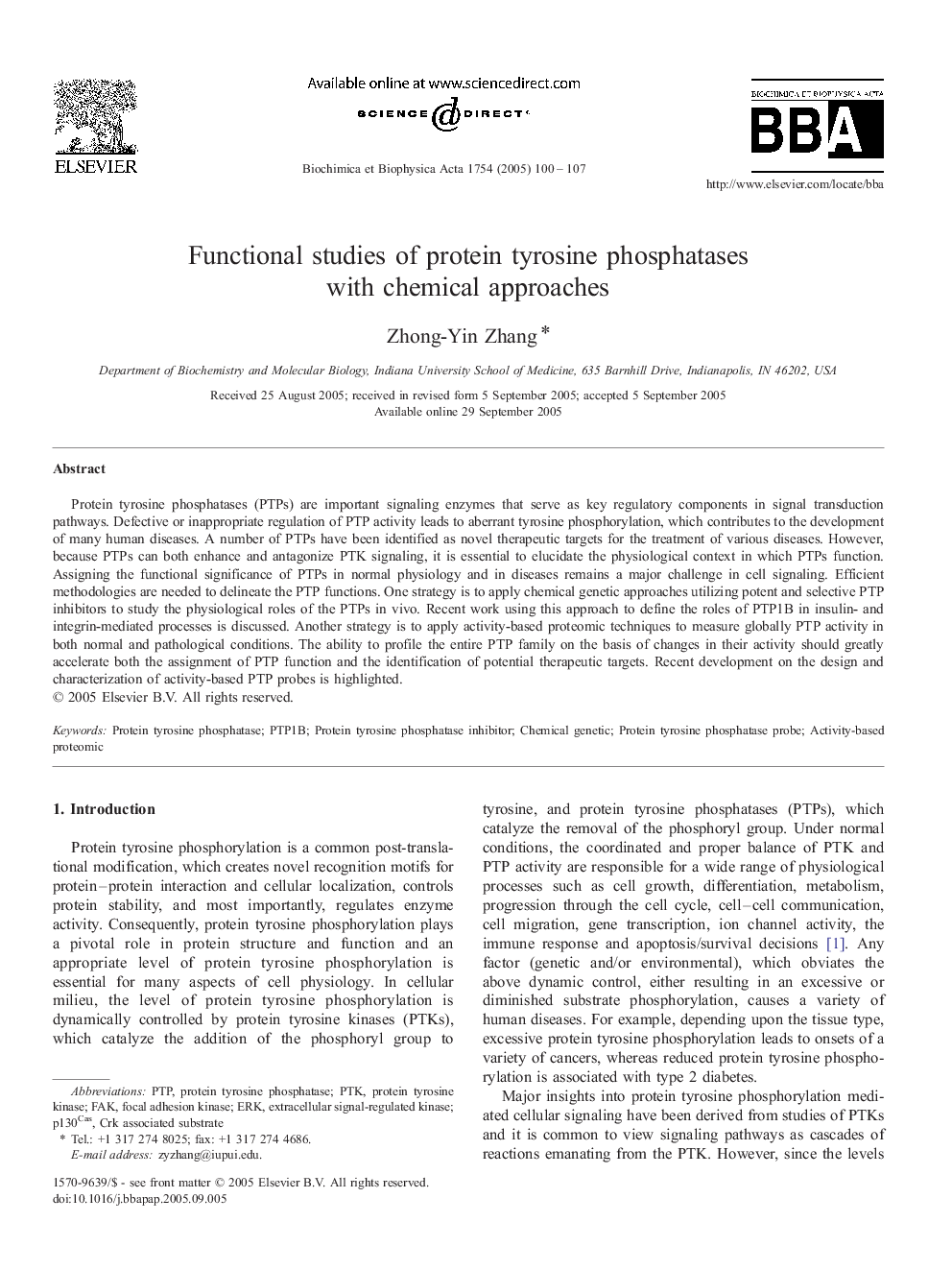| Article ID | Journal | Published Year | Pages | File Type |
|---|---|---|---|---|
| 9745076 | Biochimica et Biophysica Acta (BBA) - Proteins and Proteomics | 2005 | 8 Pages |
Abstract
Protein tyrosine phosphatases (PTPs) are important signaling enzymes that serve as key regulatory components in signal transduction pathways. Defective or inappropriate regulation of PTP activity leads to aberrant tyrosine phosphorylation, which contributes to the development of many human diseases. A number of PTPs have been identified as novel therapeutic targets for the treatment of various diseases. However, because PTPs can both enhance and antagonize PTK signaling, it is essential to elucidate the physiological context in which PTPs function. Assigning the functional significance of PTPs in normal physiology and in diseases remains a major challenge in cell signaling. Efficient methodologies are needed to delineate the PTP functions. One strategy is to apply chemical genetic approaches utilizing potent and selective PTP inhibitors to study the physiological roles of the PTPs in vivo. Recent work using this approach to define the roles of PTP1B in insulin- and integrin-mediated processes is discussed. Another strategy is to apply activity-based proteomic techniques to measure globally PTP activity in both normal and pathological conditions. The ability to profile the entire PTP family on the basis of changes in their activity should greatly accelerate both the assignment of PTP function and the identification of potential therapeutic targets. Recent development on the design and characterization of activity-based PTP probes is highlighted.
Keywords
Related Topics
Physical Sciences and Engineering
Chemistry
Analytical Chemistry
Authors
Zhong-Yin Zhang,
